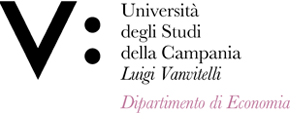Giovanna D'ALFONSO
Insegnamento di PROFILI GIURIDICI DELLA DIGITAL REPUTATION
Corso di laurea magistrale in ECONOMIA E MANAGEMENT
SSD: IUS/01
CFU: 8,00
ORE PER UNITÀ DIDATTICA: 56,00
Periodo di Erogazione: Secondo Semestre
Italiano
| Lingua di insegnamento | ITALIANO |
| Contenuti | Il corso si incentra sui profili giuridici relativi alla costruzione, alla gestione e alla tutela della reputazione digitale, focalizzando l’attenzione sia sulle ‘strategie’ legali che l’impresa e gli operatori del settore debbano adottare, ai fini della formazione di una “buona reputazione”, sia sui rimedi esperibili per la sua protezione. Il programma dell’insegnamento ha ad oggetto i seguenti contenuti. Il fondamento giuridico della reputazione digitale delle imprese e degli operatori del settore. L’analisi dei fattori che contribuiscono alla realizzazione e al consolidamento della reputazione digitale dell’impresa. Si approfondirà, dunque, la disciplina della protezione dei dati personali, la regolamentazione europea sulla gestione di sistemi di intelligenza artificiale utilizzati dall’impresa, la normativa sulle pratiche commerciali scorrette e la disciplina delle clausole vessatorie, la responsabilità sociale di impresa. Inoltre, si esamineranno i recenti provvedimenti europei che, nel regolamentare le piattaforme e il mercato digitale, dettano norme che direttamente o indirettamente incidono sulla costruzione e protezione della web reputation delle imprese, quali: il Regolamento (UE) 2019/1150 Platform to business e il Digital Markets Act. Sotto un diverso angolo di visuale, si indagheranno i rimedi esperibili dalle imprese, ai sensi del Digital Services Act, avverso gli utenti della rete, autori di recensioni ‘diffamatorie’ e nei confronti delle piattaforme digitali che le pubblichino; il diritto all’oblio, ex GDPR. Infine, si prospetteranno i rischi per la reputazione online nel metaverso. |
| Testi di riferimento | In considerazione dell’attualità degli argomenti trattati, il materiale didattico in forma di saggi e articoli pubblicati sulle principali riviste scientifiche del settore, sarà fornito direttamente dalla docente. |
| Obiettivi formativi | a) Il corso si pone l’obiettivo di fornire agli studenti la conoscenza e la comprensione delle problematiche giuridiche connesse alla costruzione, alla promozione, alla gestione e alla tutela della brand reputation, focalizzando l’attenzione sia sulle ‘strategie’ legali che l’impresa debba adottare, ai fini della formazione di una “buona reputazione”, sia sui rimedi esperibili per la sua protezione. |
| Prerequisiti | Non sono previste propedeuticità, né particolari prerequisiti |
| Metodologie didattiche | 1. Il corso si svolgerà attraverso 56 ore di lezioni frontali. Nell’ambito dell’attività didattica verranno organizzati seminari di approfondimento. Le lezioni saranno svolte anche con il supporto di strumenti informatici e saranno integrate da esercitazioni individuali o di gruppo su tematiche di particolare interesse per gli studenti. |
| Metodi di valutazione | 1. Ciascuno studente, al fine di superare l’esame, che verterà sugli argomenti del programma indicato ed ottenere il riconoscimento degli 8 CFU previsti dal piano di studi, dovrà sostenere una prova orale valutata in trentesimi nelle sedute d’esame previste. |
| Altre informazioni | 1. Tutti gli istituti giuridici affrontati nell’insegnamento si prestano alla redazione di tesi di laurea, i cui argomenti specifici verranno concordati con il docente, sulla base delle preferenze espresse dal/la candidato/a. |
| Programma del corso | 1. Il fondamento giuridico della reputazione digitale delle imprese e degli operatori del settore. |
English
| Teaching language | Italian |
| Contents | The course focuses on the legal profiles relating to the construction, promotion, management and protection of digital reputations, focusing on both the legal 'strategies' to be adopted by businesses and operators in the sector in order to establish a 'good reputation', and the remedies that can be used to protect it. |
| Textbook and course materials | In view of the actuality of the topics discussed, teaching material in the form of papers and articles published in leading scientific journals in the field will be provided directly by the professor. |
| Course objectives | a) The course aims to provide students with knowledge and understanding of the legal issues involved in the construction, promotion, management and protection of brand reputation, focusing on both the legal 'strategies' that the company must adopt in order to form a 'good reputation' and and the remedies that can be used to protect it. |
| Prerequisites | No prerequisites |
| Teaching methods | Teaching is articulated as follows: |
| Evaluation methods | Each student, in order to pass the examination, which will focus on the topics of the syllabus indicated, and obtain recognition of the 8 CFUs laid down in the syllabus, must take an oral exam assessed in thirtieths in the scheduled examination sessions. |
| Other information | 1. All the topics, which are contents of this Teaching, they can be the subject of a dissertation thesis, whose specific topics will be agreed with the teacher, based on the preferences expressed by the candidate. |
| Course Syllabus | The legal basis of the digital reputation of companies and practitioners. |








